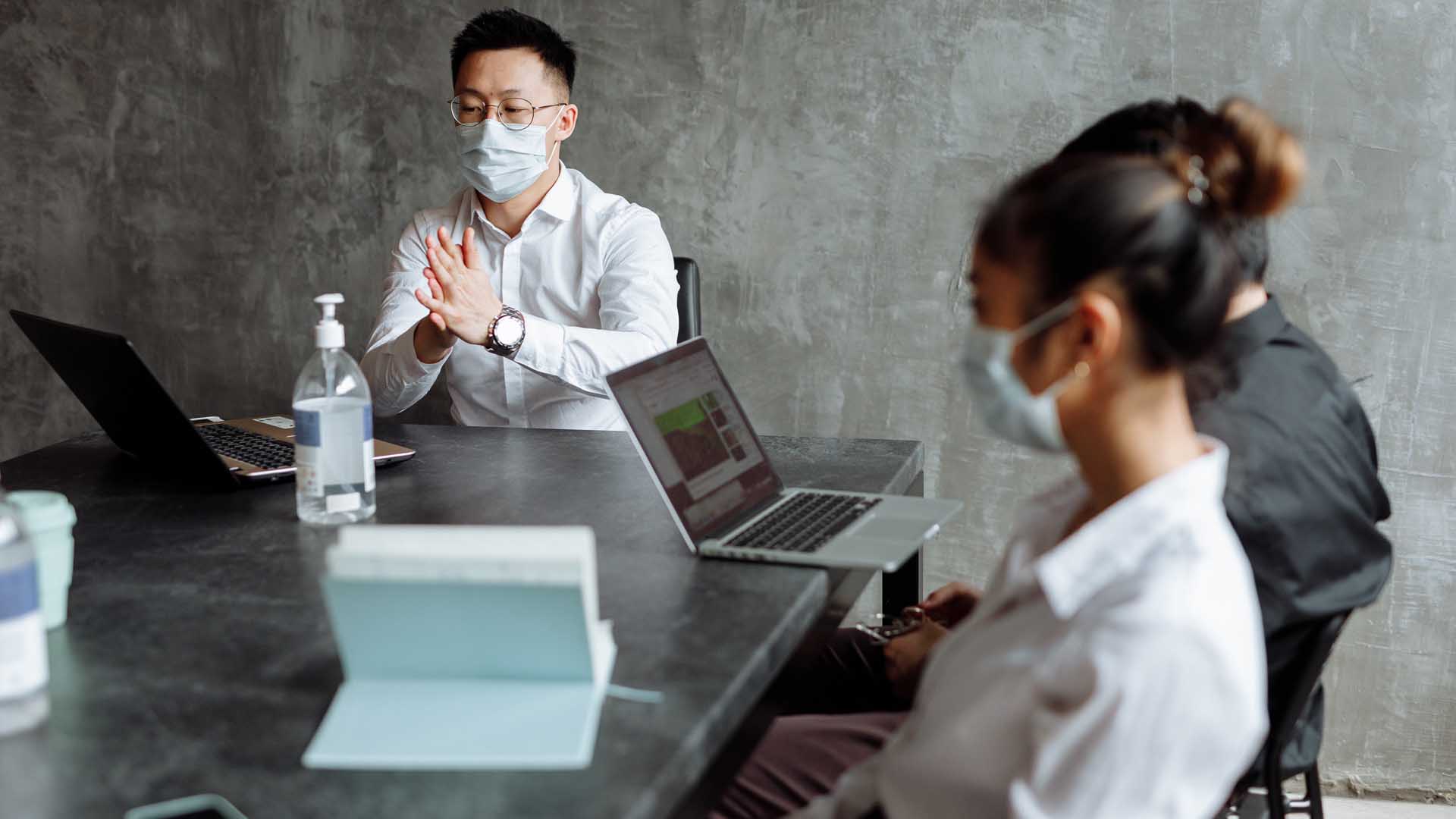Filipinos are finally stepping out of their homes after years of quarantine. Schools and workplaces – plus public areas in general – are slowly opening their doors as they transition into hybrid set-ups or full physical encounters.
In Transitioning from Virtual to Onsite Work, registered psychologist, guidance counselor and psychometrician Elaine Marie Aranda noted the current realities of returning to work during the pandemic.

“The transitional anxiety concerning employee safety influences work behaviors,” she started. “The chances of community transmission will affect social interactions in the workplace.”
Aranda pointed out the crucial roles of humane, democratic and inclusive leaders in promoting and maintaining workplace safety.

“They should provide the team with autonomy to self-organize, create and do their work, but they are also encouraged to lead by example,” she advised. “They need to take a proactive approach when setting and enforcing health and safety protocols and work assignments.”
“Leader safety commitment enacts managerial safety practices, reassuring employees of the importance of health and safety issues in the workplace,” she added.

The registered psychologist noted that employees will have difficulty in staying focused at work and suggested rekindling job engagement, or the person’s enthusiasm and involvement at work, plus job reattachment to mentally reconnect them after a long non-office period.
She raised the value of harnessing the physical, cognitive and emotional energy toward executing work roles. “Engage in light to moderate physical activities before work, have a mental preview of the work status and practice anticipatory emotion regulation,” she advised.

“Mentally prepare and reflect on your tasks and review past progress,” she added. “Use personal task trackers and note-taking, create and organize a to-do list and set priorities for the upcoming goals.”
In terms of re-establishing the social connections in the community, Aranda highlighted the need to make the employees feel like they belong, are cared for and valued. She expounded how these relationships can be strengthened through friendship ties, accompaniment and mentoring.

The expert likewise reiterated that it is of utmost importance to remain mentally healthy during this adjustment phase. And amid the challenges posed by this transition, be able to realize potentials and abilities, regulate emotions, feel productive or fulfilled and cope with the normal stresses of life.
The webinar was hosted by the Benilde Well-Being Center (BWC) and the People Organization and Development Office (PODO) of the De La Salle-College of Saint Benilde,
Equipped with 20 years of counseling experience, Aranda is currently the Director of the Office of Counseling and Career Services at De La Salle University Manila (DLSU), Incorporator and Director for Quality Assurance and Corporate Sustainability at Gray Matters Psychological and Consultancy, Inc., Chair of the Counseling Psychology Division of the Psychological Association of the Philippines (PAP) and Board Member of the Association of Psychological and Educational Counselors Asia-Pacific (APECA).
She is a certified specialist in Counseling Psychology by PAP and an active member of the local and international professional organizations.
Aranda has previous affiliations with various educational institutions and industries providing her expertise in counseling, psychotherapy and psychological testing. She has served as coordinator for linkages and programs for both adult and student at the Student Discipline Formation Office (SDFO) and as the Associate Dean of the Office of Student Affairs of DLSU. She was also a former Counselor for Benilde Center for Counseling Services, now known as BWC.
She had organized various workshops and developed modules and training programs on self-management, life skills, wellness, and counselors’ self-care, among many others.








